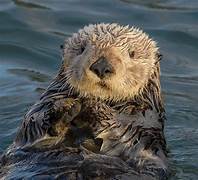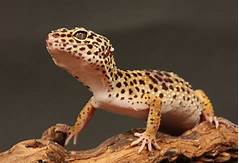Can You Have an Otter as a Pet in Florida?
Otters are playful, charismatic animals that have captured the hearts of many people. Their intelligence, agility, and social nature make them popular choices for those considering exotic pets. However, before deciding to bring an otter into your home, it is crucial to understand the complexities and responsibilities associated with owning one, particularly in the state of Florida.

Legal and Ethical Considerations
In Florida, it is illegal to own an otter as a pet. The Florida Fish and Wildlife Conservation Commission (FWC) classifies otters as Class II wildlife, meaning they cannot be held in captivity without a permit. Permits are typically issued for educational or scientific purposes only, not for personal ownership.
The ethical implications of keeping an otter as a pet are also significant. Otters are wild animals that require specialized care and a vast amount of space to thrive. Confining them to a domestic environment can compromise their well-being and lead to behavioral problems and health issues.
The Challenges of Caring for an Otter
Otters have complex dietary needs and require a varied diet that includes fish, shellfish, amphibians, and small mammals. This can be challenging to provide in a captive setting, and improper nutrition can result in health problems.
Otters are also very social animals and need regular interaction with their own species. Providing sufficient socialization opportunities for a pet otter can be difficult, especially for those living in urban areas.
Additionally, otters require ample space to swim and play. They are known to be mischievous and destructive animals and can quickly wreak havoc on a home if not properly supervised.
Environmental Impact
Otters play a vital role in maintaining healthy ecosystems. They help control populations of prey species and contribute to water quality. Removing otters from the wild can disrupt these ecosystems and have far-reaching consequences for other wildlife.
Alternatives to Otter Ownership
If you are passionate about otters and want to be involved in their conservation, there are several ways to do so without owning one as a pet. You can:
- Volunteer at a wildlife rehabilitation center that cares for otters.
- Support organizations working to protect otter habitats.
- Educate yourself and others about the importance of otters in the wild.
Conclusion
While otters may seem like appealing pets, owning one in Florida is illegal and unethical. The challenges of providing proper care and the potential impact on the animal's well-being and the environment make otter ownership unsuitable for the majority of individuals. By choosing alternative ways to appreciate and protect otters, you can contribute to their conservation and ensure their survival in the wild.
Declaration: All article resources on this website, unless otherwise specified or labeled, are collected from online resources. If the content on this website infringes on the legitimate rights and interests of the original author, you can contact this website to delete it.





